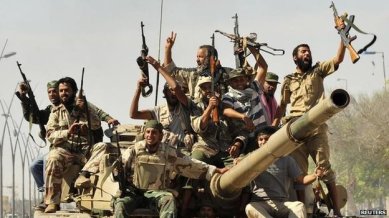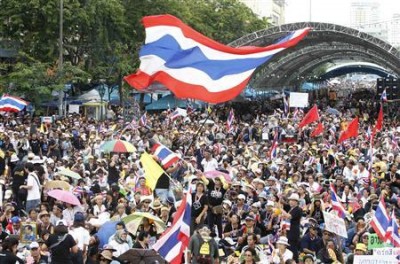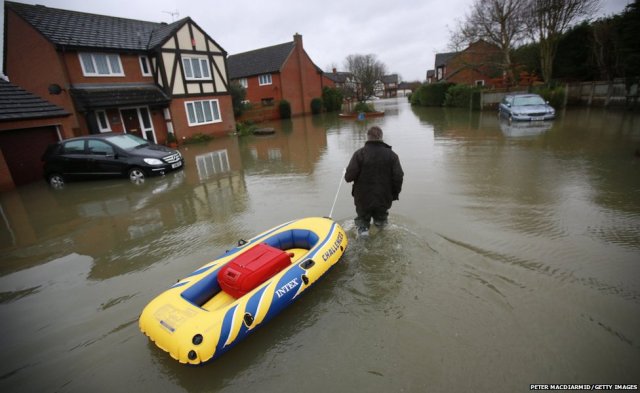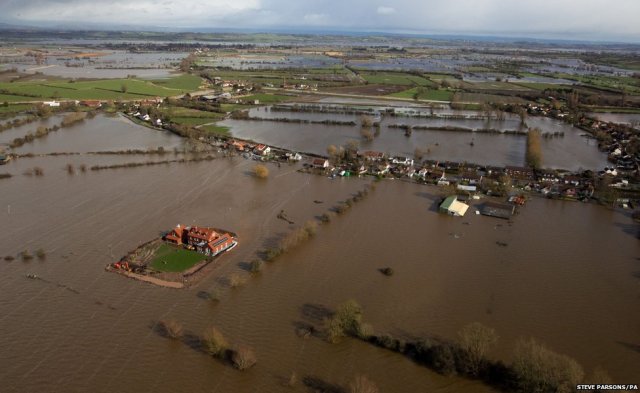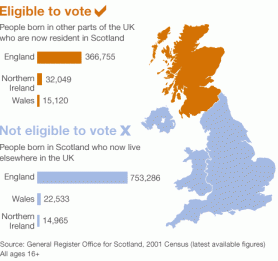We have recently had a request for a post on the war on terror… Anyone is able to request a post idea by emailing me at digestiblepolitics@gmail.com – thanks 🙂 This topic is clearly very extensive, but of great interest and importance, so please read, enjoy and share!
This phrase, the war on terror, has been popularised by ex-president George Bush as a result of the 9/11 attacks in 2001. These attacks mobilised many countries to eliminate a number of terrorist organisations, including Al-Qaeda. This term is no longer used by Obama’s administration, but they have a similar objective of combatting terrorism by using a different phrase: Overseas Contingency Operation.
Terrorism before 9/11
Al-Qaeda can be seen to have originated from the Soviet War in Afghanistan (1979-89). In this war the USA, UK, Saudi Arabia, Pakistan and China gave their support to the Islamist mujahadeen guerillas who were fighting against the Soviet Union and the Democratic Republic of Afghanistan. In the 1990s Al-Qaeda developed following sponsorship by Osama Bin Laden in the World Islamic Front for Jihad Against Jews and Crusaders (WIFJAJC). In 1998, Bin Laden declared war on the West and Israel. Later in 1998, the embassies of Kenya and Tanzania were bombed, leading to Bill Clinton – the then US president – commenced Operation Infinite Reach which aimed to bomb locations in Afghanistan and Sudan where members of WIFJAJC were believed to be. However, this operation was deemed a bit of failure as no leaders of WIFJAJC or the Taliban were killed. Just before 9/11 there was the 2000 millennium attack plots, which included an attempted bombing in LA airport and the USS Cole (a military ship) bombing.
Objectives
The Authorisation for Use of Military Force Against Terrorists (AUMF) was brought into US law within a week of the 9/11 attacks. It allowed the American military to use any necessary force against those responsible for the attacks. Bush defined the war on terror as having the following objectives:
– Defeat terrorists and their organisations
– Identify, locate and demolish terrorists along with their organisations
– Deny sponsorship, support and sanctuary to terrorists
– Diminish the underlying conditions that terrorists seek to exploit
– Defend citizens at home and abroad

Military Operations
Operation Active Endeavour = NATO operation to stop movement of militant/weapons in mediterranean
Operation Enduring Freedom = this is what the Bush administration called the war in Afghanistan, alongside 3 smaller global conflicts explained below:
Afghanistan = US demanded the handing in over Bin Laden, but they refused after the US did not give evidence that Bin Laden was linked to 9/11. So, war was commenced with Taliban in Afghanistan, forcing the Taliban out of the cities to the more mountainous areas of the country. Operation Anaconda set up to kill any remaining Taliban in certain mountainous regions leading to heavy Taliban casualties. The Taliban regrouped in west Pakistan and have since kept the pressure on the USA, UK and other coalition forces. In 2010, Operation Moshtarak established to finish off the Taliban. Today, it is hoped forces will be withdrawn from Afghanistan by the end of the year.
Philippines = In 2002 forces were sent out to help the Armed Forces of the Philippines in their conflict against Filipino Islamist groups.
Horn of Africa = Although there is no specific goal, forces have been deployed here to prevent disruption and militant activity. A group called Task Force 150 was set up to control, inspect and stop shipments, if they wish, from entering the Horn of Africa. It was reported in 2006 that Bin Laden was said to have told militants to set up an Islamic state in Somalia and if anyone intervened Al-Qaeda would fight against them. Issues of terrorism (especially linked to Al-Qaeda) have continued to this day with far too many incidents to report here.
Trans Sahara = Counter-terrorism efforts and the control of arms/drugs trafficking has been set up. January 2012 saw the start of the conflict in northern Mali with islamic militants trying to overthrow the government. In January 2013 France sent troops to the area and launched Operation Serval, which aimed to remove the radical Islamists from the area.
Iraq
Since Saddam Hussein invaded Kuwait countries have dramatically increased their concerns of terrorism in Iraq. A no fly zone was set up by US forces but after Operation Desert Fox (1998) Iraq said they would no longer respect the no fly zone and simply shoot down US aircrafts. Ex-president G.W.Bush sent people into Iraq to locate weapons of mass destruction and destroy them. However, it was said that they could find no weapons of mass destruction. In 2003, war was declared on Iraq. Although the main combat was believed to be over within 2 months, terrorist groups contributed to an even greater number of casualties than the initial invasion. At the end of 2003 Hussein was captured and was later killed in 2006.
Pakistan
After the 9/11 attacks the then president of Pakistan, Pervez Musharraf, declared he was on the side of the USA against the Taliban in Afghanistan. In 2002, Musharraf gave a speech stating his opposition to Islamist extremism and said he would contribute to stop it. A number of US-Pakistan operations led to the capturing of a number of terrorists. In 2004, the Pakistan Army sent int 80,000 troops to one location of Pakistan to remove Al-Qaeda and other terrorist organisations from that region. Drone attacks and on-foot conflict still exists in this region with an estimated 15 US deaths here. On 2 May 2011 Bin Laden was killed by the US special operations forces in Pakistan.
Yemen
Al-Qaeda are also prominent in Yemen and a number of military strikes have been made against members of the organisation there.In counter terrorism efforts the US government has provided millions of dollars of support to combat terrorism here.

International military support
The war in Afghanistan began with the USA, UK and the Afghan Northern Alliance. Later Australia, Canada, Denmark, France, Italy, Netherlands, New Zealand and Norway (amongst others) joined the war. Less than 24 hours after 9/11 it was said the attacks were against all 19 NATO member state countries. NATO also set up Operation Active Endeavour explained above. Pakistan also joined the US on the war on terror, especially seen in the Waziristan War in Pakistan.
International Security Assistance Force (ISAF)
NATO set this up in 2001 to assist the establishment of the first post-Taliban elected government. In 2006 ISAF said they would replace US forces in the area as part of Operation Enduring Freedom.
Attacks since 9/11 by Al-Qaeda (non-exhaustive list)
– 2002 bombing in Bali, Indonesia
– 2003 Istanbul bombings
– 2004 Madrid Train Bombings
– 7 July 2005 London bombings
– 2007 Glasgow International Airport Attack
– 2011 Marrakech bombings
– 2012 US Consulate attack in Benghazi
Failed Attacks
– 21 July 2005 London Bombings
– 2006 Hudson River bomb plot
– 2007 John F. Kennedy International Airport attack plot
– 2010 cargo plane bomb plot in USA
– 2013 VIA Rail Canada terrorism plot
Post 9/11 in the USA
In 2002 the US Department of Homeland Security was set up to protect the USA. The USA Patriots Act 2001 allowed law enforcement agencies greater access to personal information, ease intelligence gathering, and makes it easier to deport immigrants etc. However, some interest groups have said such powers encroach civil liberties. In 2005 Bush gave a speech stating that over 400 people had been charged, with over half being convicted, of offences as a result of the Patriots Act. By 2003, 12 major conventions/protocols were set up to continue making changes to combat terrorism. A Continuity of Operations Plan was established so the country/government could continue to run smoothly in case any major event happened.

Casualties
There are no exact number of casualties since the war on terror began but there are some predictions:
– In Iraq it is estimated that between 100,000 and 1 million people have died – a clearly very wide estimate coming from a wide number of sources! E.g. compare the statistics of the Iraq Body Count Project to the Opinion Research Business poll.
– In Afghanistan it is estimated between 10,960 and 49,600 people have died
– In Pakistan it is estimated between 1,467 and 2,334 were killed in drone attacks since 6 May 2011, whilst tens of thousands have been killed by terrorist attacks
– In Somalia there has been an estimated 7,000+ deaths
Costs
Official documents are not often – if at all – released. But in a congress report in 2011 estimated spending on the war on terror in the 2011 fiscal year at $1.2 trillion. However, a different academic report estimated it to be closer to $2.7 trillion.
Is the war on terror over?
Some said that Obama’s speech on May 23, 2013, marked the end of the war on terror as it appeared to sound like a speech declaring the mission had been accomplished. One analyst, Peter Beinart, suggested that most people thought the war on terror was over.
Do you think the war on terror is over? What are your views/concerns about terrorism?
Thanks for reading and please do share,
Digestible Politics
https://www.facebook.com/pages/Digestible-Politics/476112109093593?ref=hl
https://twitter.com/Digest_politics
http://www.youtube.com/user/DigestiblePolitics
